Key Texts
Key Texts is a postgraduate series that seeks to re-think which texts occupy places in our teaching and research. Each post takes a single text as its subject, making the case for its status as a ‘key text’. In some cases, this involves celebrating essays vital to the development of an academic discipline, in others, excavating sixteenth-century publications that have been long overlooked. In all instances, posts ask us to reflect upon our disciplinary canons, and on the voices and experiences we choose to amplify. In what directions is early modern studies headed? Which texts need to be part of its future? Encompassing canonical and non-canonical texts, as well as a range of primary and secondary materials, this series begins to suggest some possible answers to these questions.
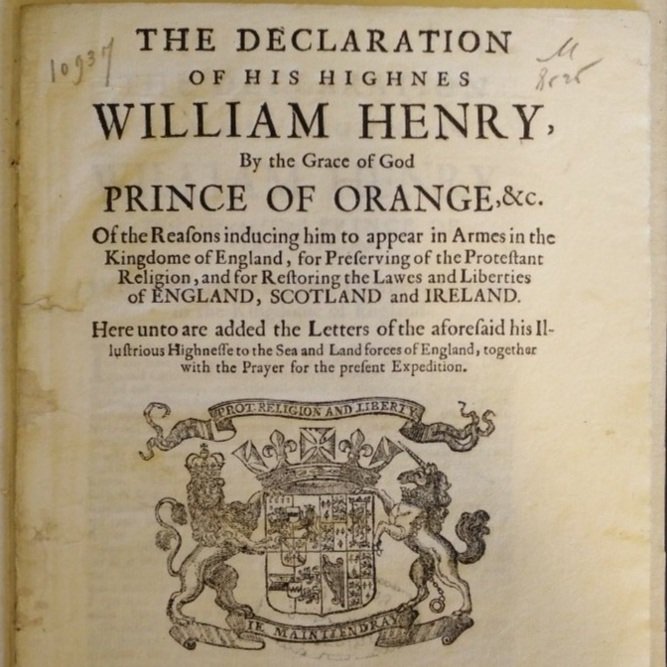
The Declaration
Basil Bowdler explores the secret creation and widespread dissemination of The Declaration of His Highness William Henry, a 5,000-word pamphlet at the centre of arguably the most successful propaganda campaign in early modern European history. All-but forgotten today, the text was circulated in astonishing numbers and, as Bowdler makes clear, it ‘bears vigil to the European influence in the development of Britain’s parliamentary democracy’.
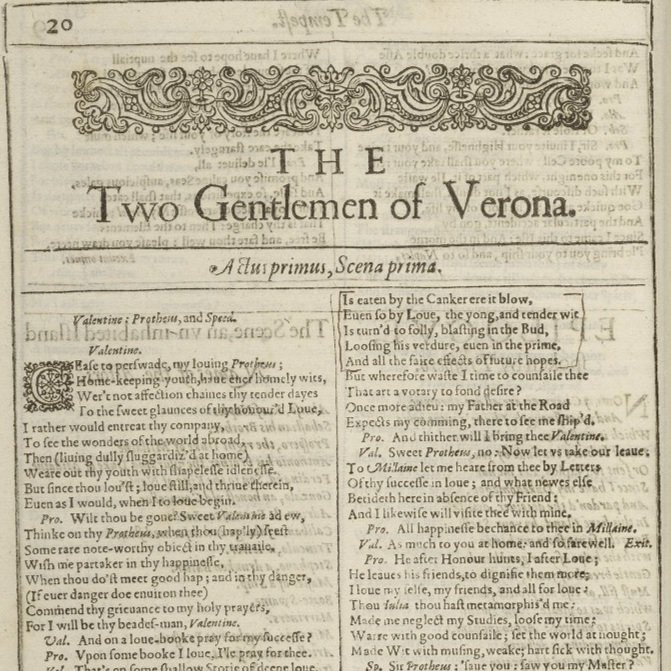
The Two Gentlemen of Verona
Anna Quercia-Thomas argues for the place of The Two Gentlemen of Verona, first printed in 1623, alongside William Shakespeare’s later, better regarded works. Quercia-Thomas puts to us that what many have seen to be technical flaws in the play, as early explorations of themes later perfected over the course of Shakespeare’s career, make more sense when read through the lens of the history of emotion.
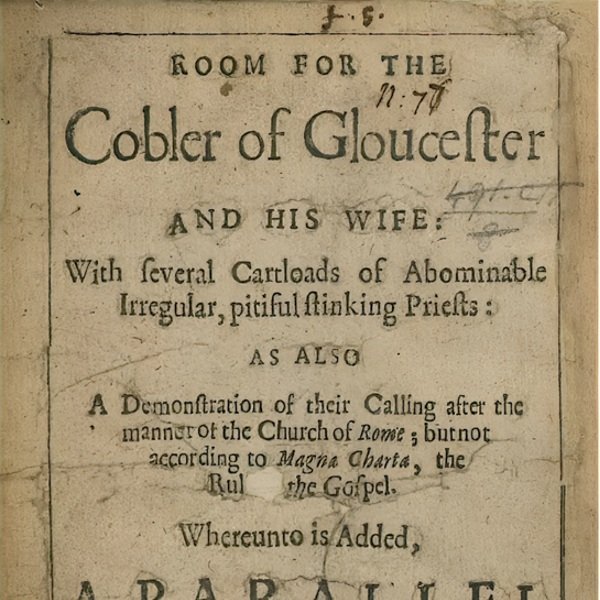
Room For The Cobler of Gloucester
Anna Pravdica recovers the veritable cartload of Ralph Wallis’ now largely forgotten 1668 pamphlet, Room For The Cobler of Gloucester. Well-known in its own time, and enjoying cultural currency well into the 18th-century, the pamphlet, as Pravdica demonstrates, has much to tell us about religion, politics, social status, community, and family from the Civil Wars through to the Restoration and beyond.
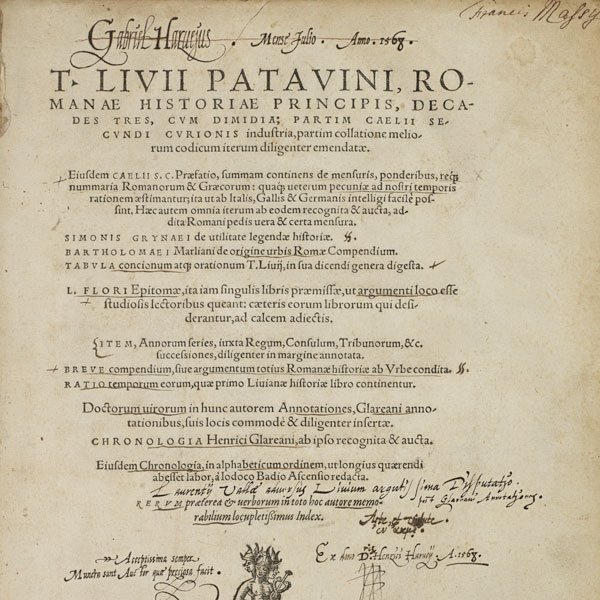
How Gabriel Harvey Read His Livy
Madeleine Bracey studies the significance of Lisa Jardine and Anthony Grafton’s foundational 1990 article on the English scholar Gabriel Harvey’s annotations of Livy. As Bracey shows us, Jardine and Grafton’s essay not only transformed understandings of Harvey’s work, but reshaped early modern book historiography, posing new questions about what it meant for scholars to read in the period.
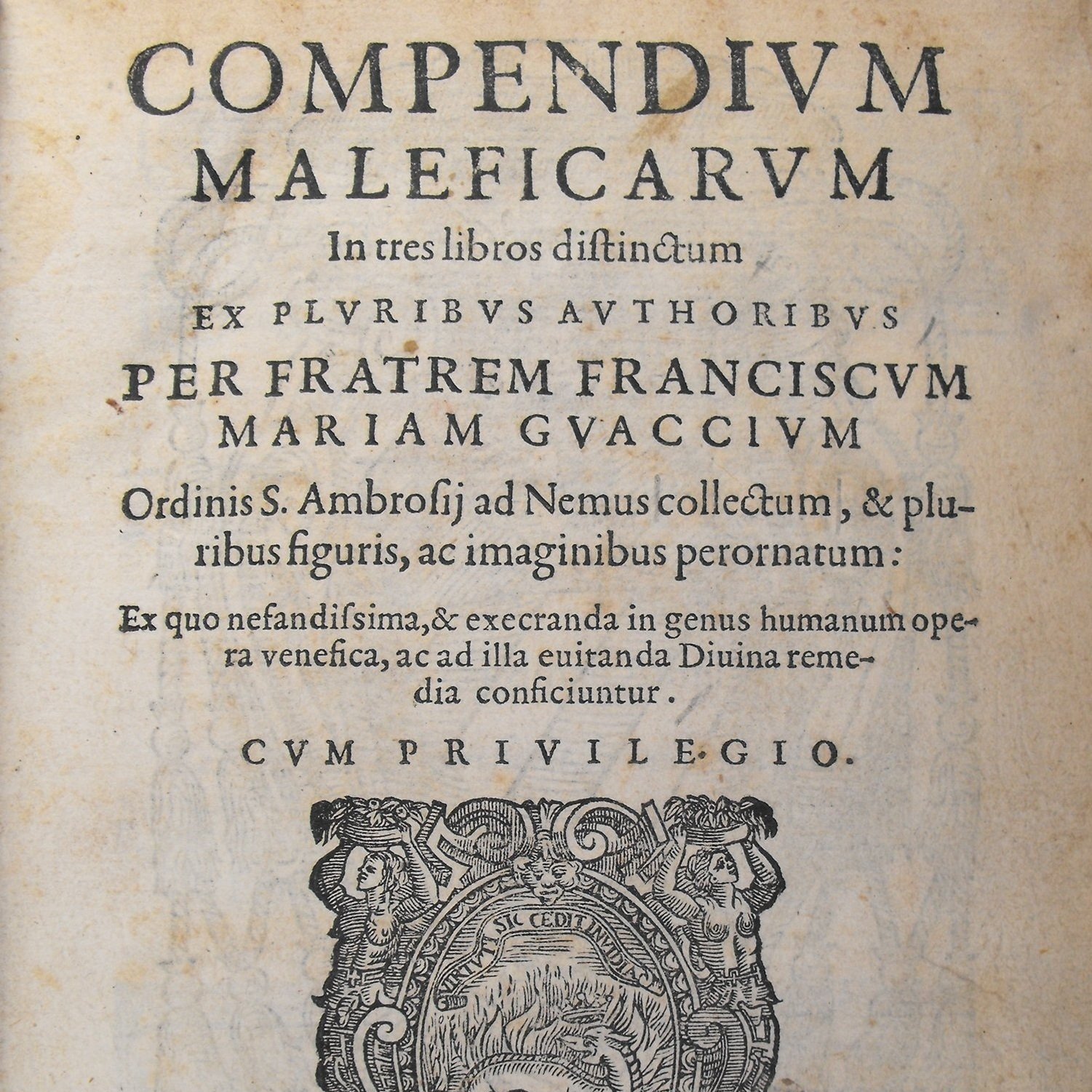
Compendium Maleficarum
Olivia Garro examines Barnabite friar Francesco Maria Guazzo’s Compendium Maleficarum, first published in Milan in 1608. Garro argues that close attention to a much cited and yet often misunderstood text can not only offer us valuable insights into contemporary systems of belief, but help us to better understand the Italian Inquisition, its definition and treatment of witchcraft.
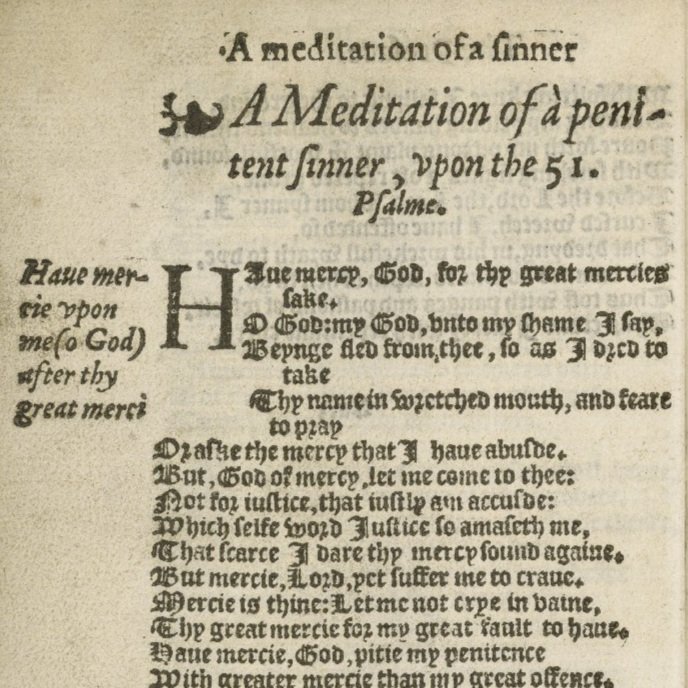
A Meditation of a Penitent Sinner
Anna-Rose Shack makes the case for the importance of a 1560 sonnet sequence, appended to a volume of sermon translations by Anne Lock. Shack shows us how attention to an ‘outstanding example of poetic innovation’ can further conversations about historical women’s writing, the development of Protestant poetics, and the interplay between poetic form and gendered voices.

The Secrets
Dr Julia Martins uncovers The Secrets of Alessio Piemontese, a bestselling sixteenth- and seventeenth-century recipe book. Still relatively unknown to wider historical scholarship, the text, as Martins observes, ‘was an editorial phenomenon’, and it ‘presents the historian with extra layers to peel’ in writing the histories of science, medicine, gender, craft, translation, amongst others.
Use the Word Cloud to group posts by shared theme. You can reset your filter by clicking here.
- Annotation
- Attribution
- Authorship
- Belief
- Bestseller
- Book History
- Calvin
- Censorship
- Clergy
- Collaboration
- Copyright
- Craft
- Diplomacy
- Education
- Emotion
- Essay
- Europe
- Everyday
- Experimentation
- Faith
- Family
- Friendship
- Gender
- History
- Homosocial
- Humanism
- Illustration
- Innovation
- Knowledge
- Law
- Marginalia
- Market
- Medicine
- Nonconformist
- Pamphlet
- Parliament
- Persona
- Poetics
- Poetry
- Politics
- Propaganda
- Public
- Reading
- Recipes
- Reformation
- Religion
- Restoration
- Revolution
- Science
- Selfhood
- Sonnet
- Status
- Translation
- Uncertainty
- Voice
- Witchcraft
- Women
Or search the series by way of a term or phrase of your choice:
Key Texts Image Bibliography
A Meditation of a Penitent Sinner: ‘A Meditation of a Penitent Sinner’, appended to Jean Calvin, Sermons de Jehan Calvin, trans. Anne Lock (London, 1560). LUNA: Folger Digital Image Collection. (CC BY-SA 4.0).
Compendium Maleficarum: Francesco Maria Guazzo, Compendium maleficarum (Mediolani [i.e. Milan], 1608), octavo (Sp Coll Ferguson Ao-a.60). Image: Glasgow University Library.
Declaration of His Highness William Henry: The Declaration of his Highness William Henry (The Hague, 1688). Image courtesy Leiden University.
How Gabriel Harvey Read His Livy: Titus Livius Patavini [Livy], T. Liuii Patauini Romanae historiae principis decades tres (Basel, 1555). Princeton University Library, Department of Rare Books and Special Collections, South East (RB) (Ex) PA6452. A2 1555q.
Room For The Cobler of Gloucester And His Wife: Ralph Wallis, Room For The Cobler of Gloucester And His Wife With Several Cartloads of Abominable Irregular, pitiful stinking Priests (London, 1668). Courtesy of the British Library, digitized by Google Books project.
The Secrets: Secreti, The Secrets of the Reverend Maister Alexis of Piemont (London, 1595). Public Domain.
The Two Gentlemen of Verona: William Shakespeare, ‘The Two Gentlemen of Verona’ in Comedies, Histories, & Tragedies (London, 1623). LUNA: Folger Digital Image Collection.
Editor: Jonathan Powell (2023)